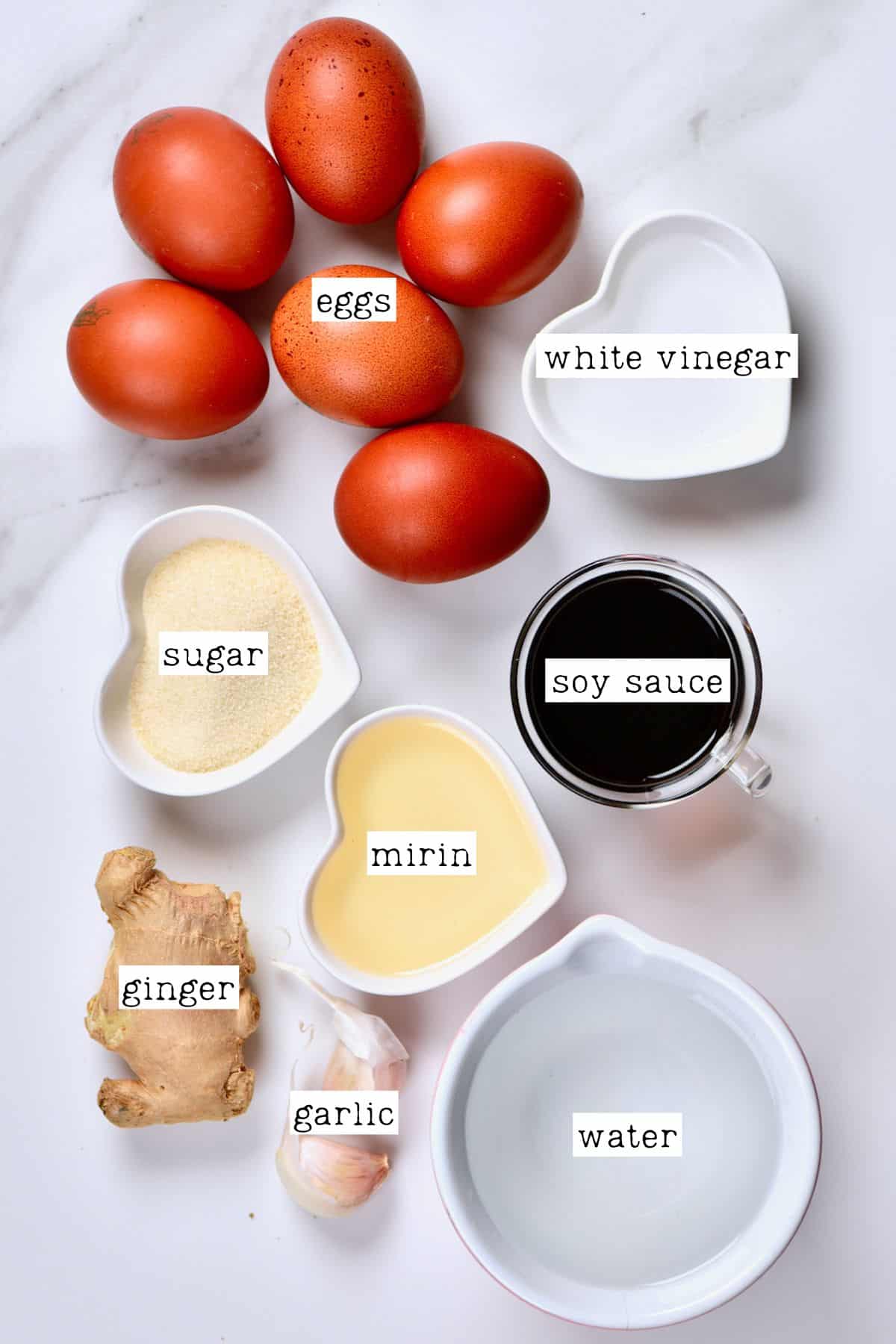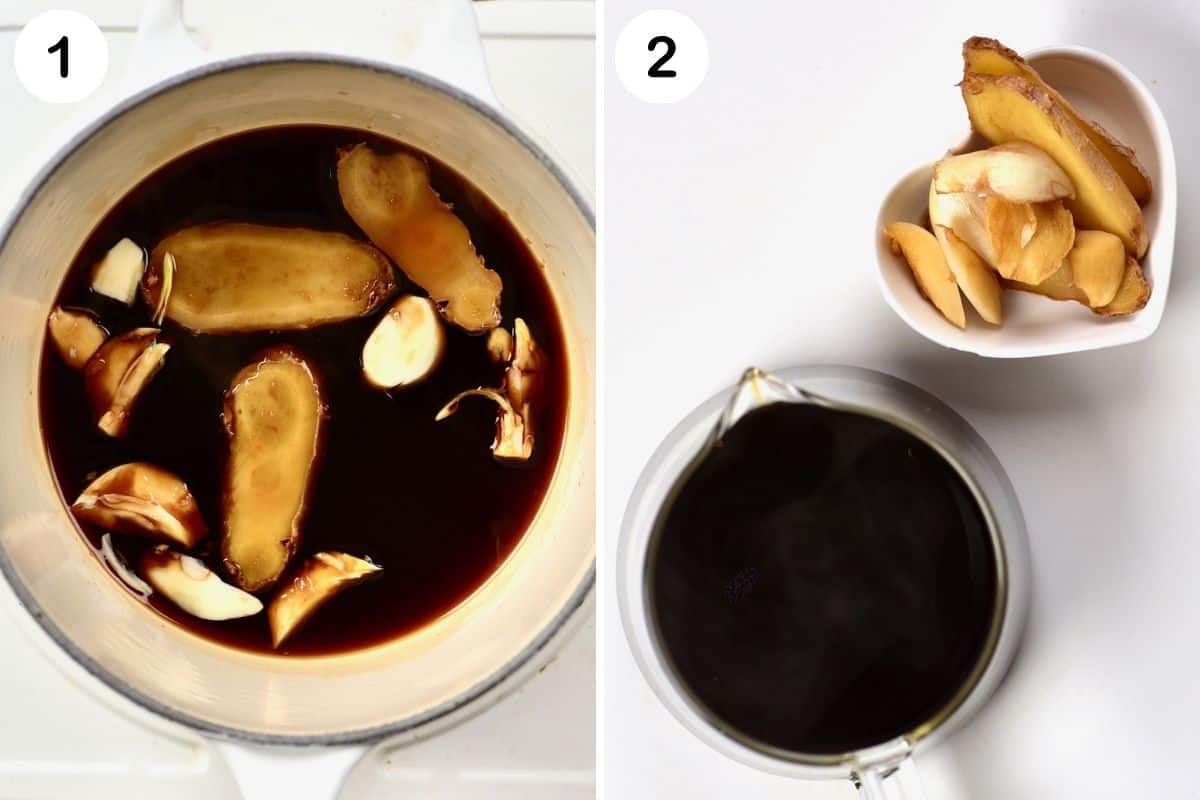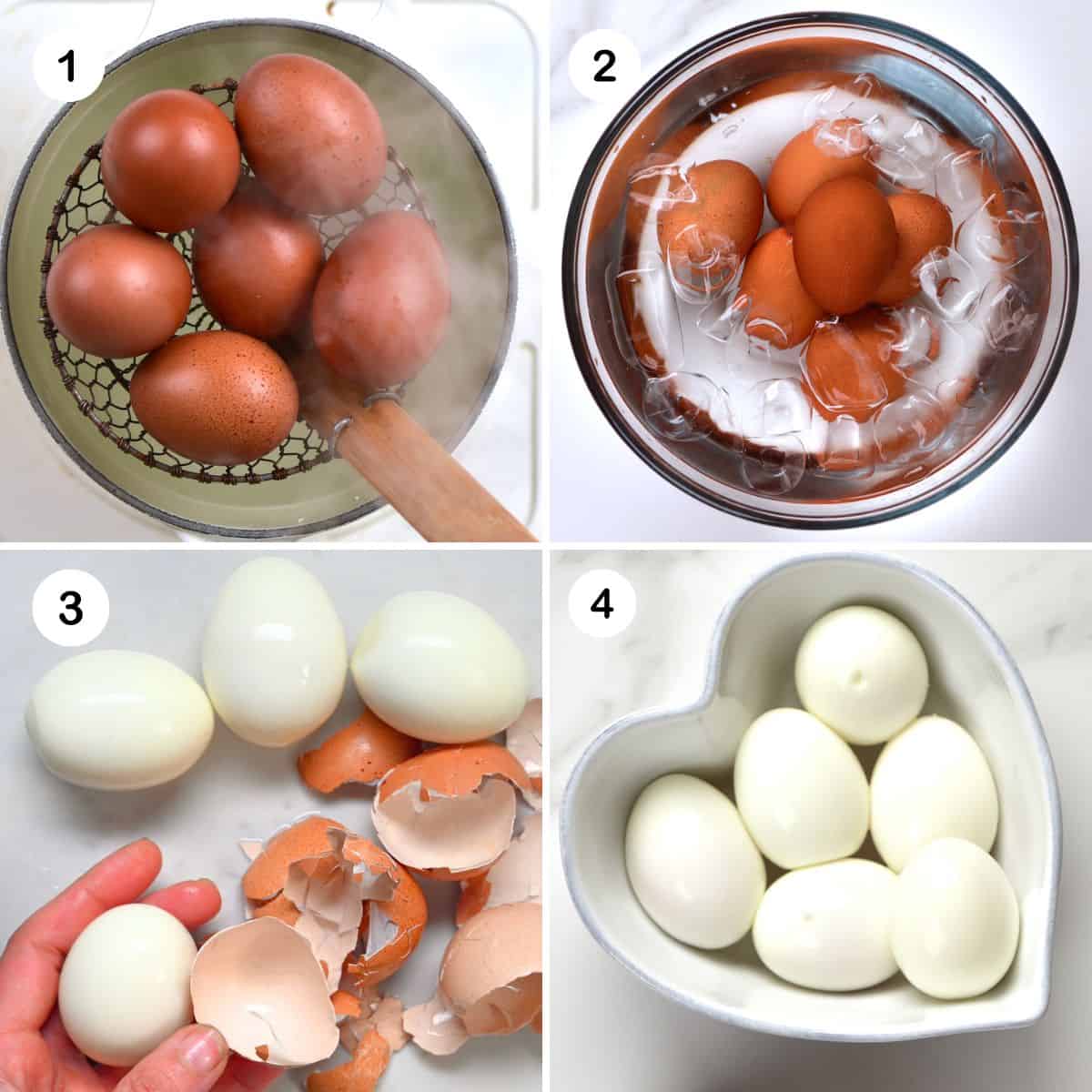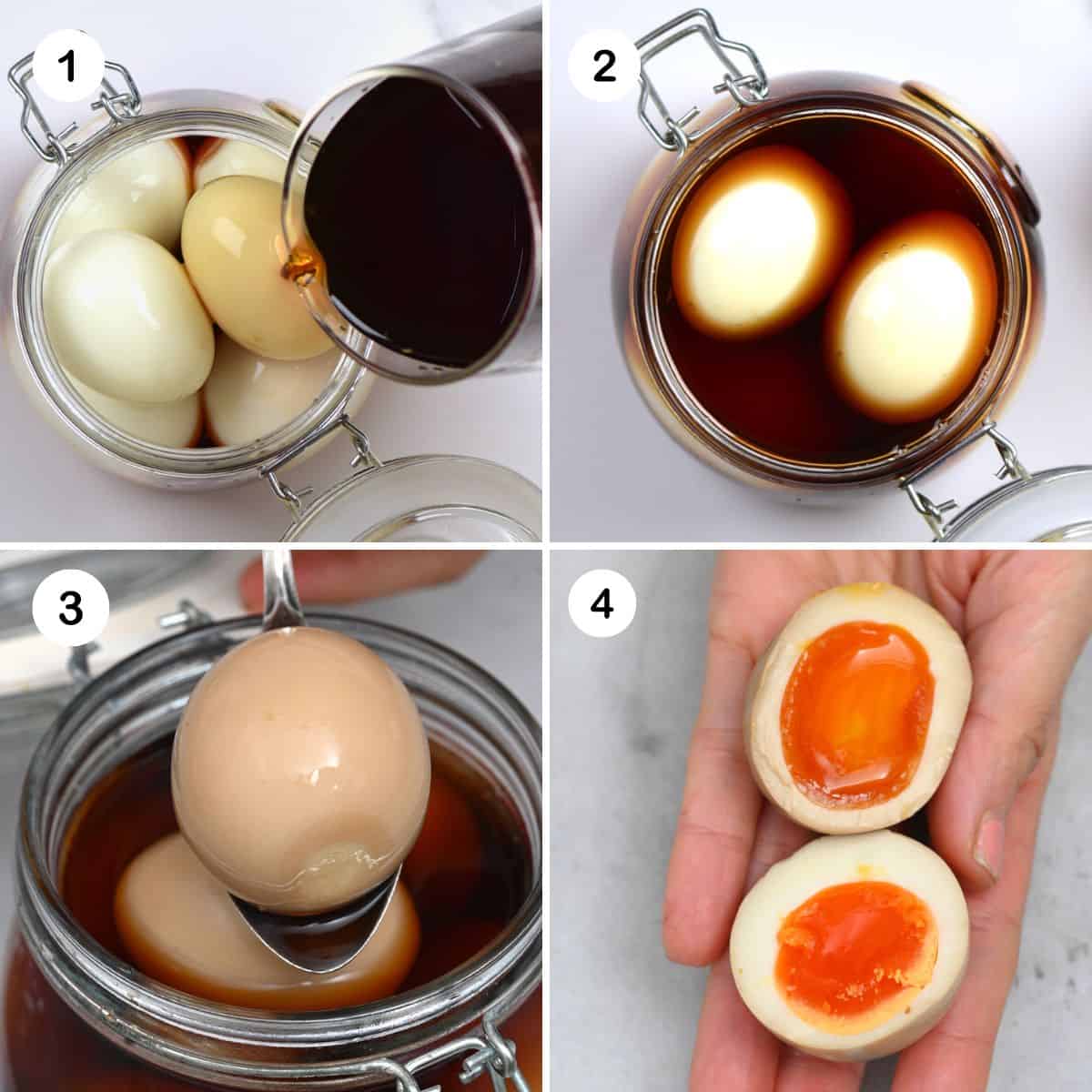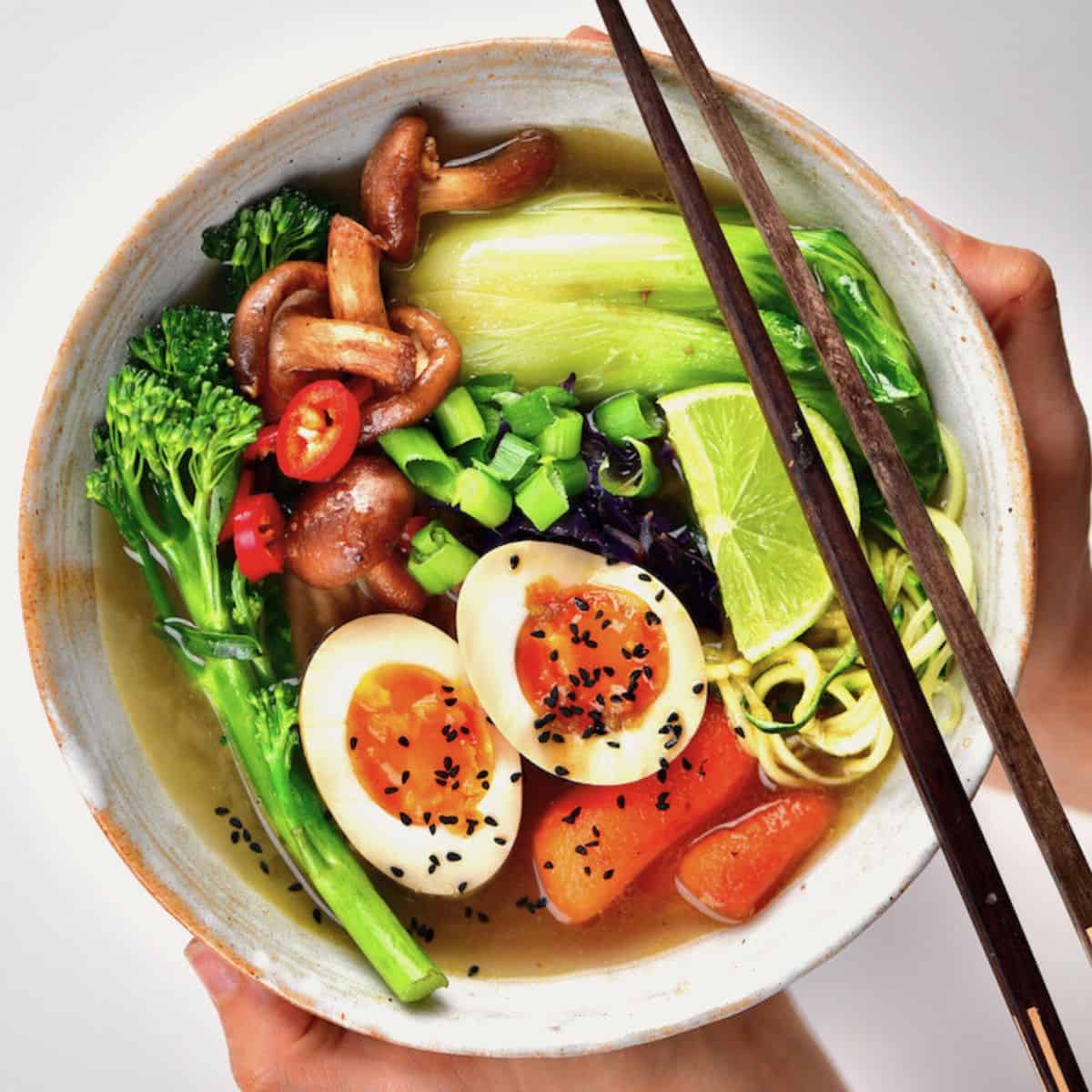Eggs are one of my all-time favorite ingredients and these ramen eggs are one of my obsessions. They’re perfectly jammy and packed with flavor. Plus, they only require pantry-staple ingredients and a simple method to prepare.
What are ramen eggs
Ramen eggs are also called shoyu eggs, soy sauce eggs, or soy-marinated eggs. In Japan they are called shoyu tamago, nitamago, ajitama, or ajitsuke tamago. They are flavorful soft-boiled eggs (they MUST have a jammy yolk) and are marinated in a sweet and savory, soy sauce-based marinade. When done right, the eggs absorb the marinade flavors and take on a deep brown color on the exterior. They’re creamy in the middle and packed with rich, umami-dense flavor, ready to take your ramen or miso ramen to the next level.
Watch how to make it!
How to make ramen eggs
Prepare the marinade
First, peel and slice the ginger and smash or slice the garlic. Then, add them to a small saucepan along with the soy sauce, mirin, and sugar. Heat the mixture over medium-low heat, often stirring, until the sugar dissolves, then for a further 1-2 minutes. Remove the pan from the heat and add the water. Remove the ginger and garlic with a strainer and set the liquid aside to cool.
Eggs: I used large, room-temperature eggs that are similar in size. White vinegar: To add to the eggs while cooking for easier peeling. Salt: To add to the water – which is also meant to help with peeling.
For the Marinade:
Soy Sauce: Dark soy sauce is best for its depth of flavor and deeper color. Aromatics: Use garlic and ginger for a robust and slightly hot flavor. Sugar: To balance the tangy and salty flavors and add a subtle sweetness. Mirin: It is a slightly sweet, acidic rice wine that adds a tangy, sweet flavor. Water: To bring the marinade to the correct consistency.
There’s no need to discard the ginger/garlic. Instead, chop it up and use it within your ramen, stir-fries, and other recipes. If you leave them in the marinade, their flavor will become stronger over time and may throw off the flavor balance.
Cook soft-boiled eggs
Bring a large pot of water and the white vinegar to a boil. Once boiling, use a slotted spoon to carefully lower the eggs in the water. Then lower the heat to a simmer (bubbling but not causing the eggs to bounce about). Allow them to boil for exactly 7 minutes. Keep in mind that cooking times vary depending on the size of the eggs as well as your preference for their doneness. Immediately after cooking, transfer the eggs to an ice bath (a bowl of iced water with ice). Leave them to sit for at least 8-10 minutes or until they’re entirely cooled. This step is important to maintain the jammy/runny yolk. If you don’t halt the cooking process, the residual heat will continue to cook the eggs. Once cool, peel the eggs. Gently tap one side against a surface and then roll the egg back and forth over the counter to break up the shell. Then carefully peel them. Here are my top tips for peeling eggs if you need extra help.
Marinate the eggs
Transfer the boiled eggs to a glass container (I prefer a large jar, but a bowl will work, too). Cover them with the soy sauce mixture. It can help to place a little weight (a small coaster/plate) over the top to ensure any floating eggs still get soaked. You can also use a Ziplock. First, place it in a bowl and add the eggs and marinade. Then push out all excess air. Clip the bag closed just above the eggs rather than at the “zip” top. Leave the ramen eggs to marinate in the fridge for a minimum of 3 hours (for a very subtle color/flavor) and up to 3 days. I find overnight is best. Wet the knife before cutting ramen eggs to keep the yolk from sticking. Use a sharp knife with a straight edge. Remember to wash and wet it again after each egg.
Serve
Enjoy these Japanese soft-boiled eggs in a warm bowl of chicken ramen, as a side dish with sushi rice, in salads, over avocado toast, or enjoy the ramen eggs as a snack, lightly sprinkled with sesame seeds. If you try this ramen egg recipe, let me know how it goes in the comments below. I’d appreciate a recipe card rating and would love to see your recipe recreations – tag me on Instagram @Alphafoodie!










